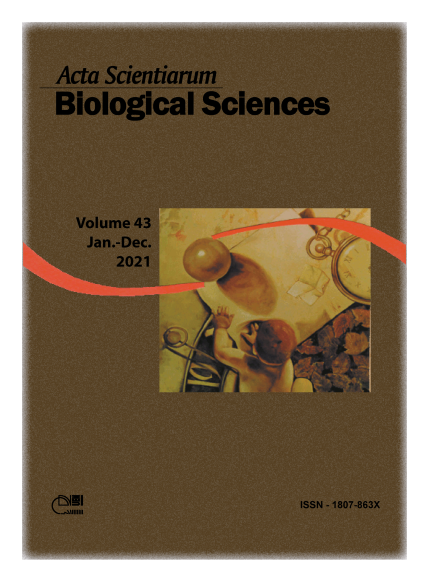Primary culture macrophages from fish as potential experimental model in toxicity studies with multiwalled carbon nanotubes
Resumo
Multiwalled carbon nanotube (MWCNT) has been broadly used in several sectors of society. This material when exposed to the environment might reach the aquatic animals and cause toxic effects. Here, it was evaluated the MWCNTs toxicity in melanomacrophages primary culture that was submitted to 1 µ gm L-1 MWCNTs for 24 hours. After exposition to MWCNT, 48 and 59% liver and spleen melanomacrophages were healthy, respectively. The control group presented 85% viability. Phagocytosis activity of melanomacrophages was observed by presence of black inclusions in cytoplasm. The findings indicate MWCNT was cytotoxic to melanomacrophages, where its release and effect into aquatic environment must be more studied. Finally, the melanomacrophages present large potential as experimental model for evaluation of carbon-based nanomaterial toxicity.
Downloads
DECLARAÇÃO DE ORIGINALIDADE E DIREITOS AUTORAIS
Declaro que o presente artigo é original, não tendo sido submetido à publicação em qualquer outro periódico nacional ou internacional, quer seja em parte ou em sua totalidade.
Os direitos autorais pertencem exclusivamente aos autores. Os direitos de licenciamento utilizados pelo periódico é a licença Creative Commons Attribution 4.0 (CC BY 4.0): são permitidos o compartilhamento (cópia e distribuição do material em qualqer meio ou formato) e adaptação (remix, transformação e criação de material a partir do conteúdo assim licenciado para quaisquer fins, inclusive comerciais.
Recomenda-se a leitura desse link para maiores informações sobre o tema: fornecimento de créditos e referências de forma correta, entre outros detalhes cruciais para uso adequado do material licenciado.













1.png)




3.png)













